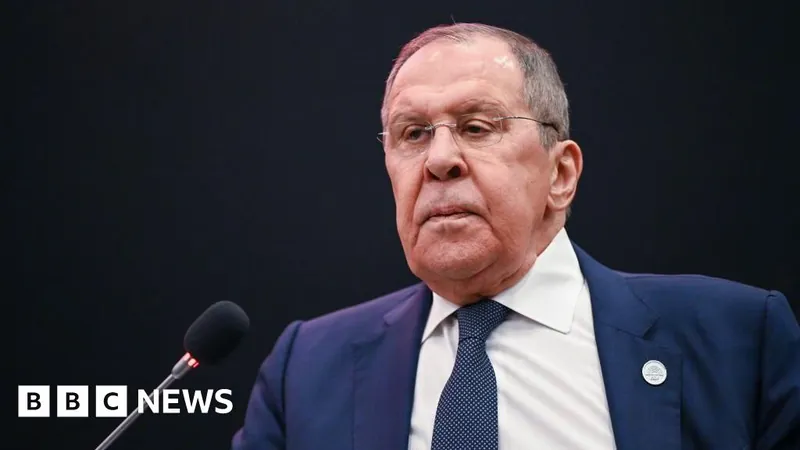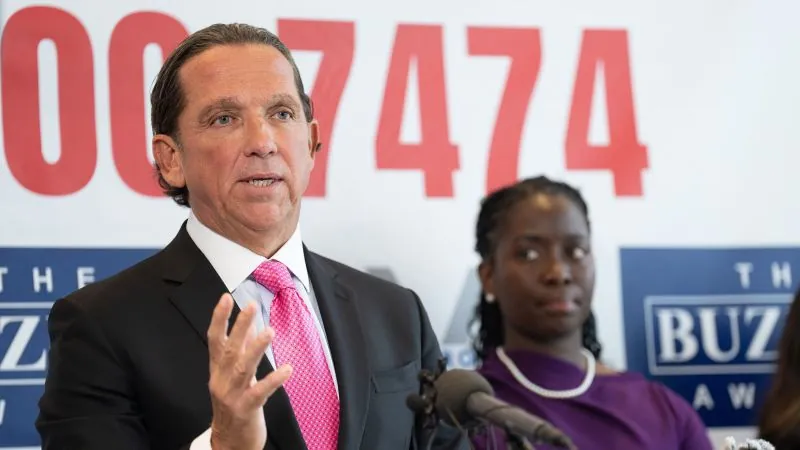
Sergei Lavrov's Controversial Return to the EU: A Shocking Step Amid Ukraine Crisis
2024-12-05
Author: Kai
Russia's Foreign Minister, Sergei Lavrov, has made headlines with his first visit to an EU country—Malta—since the onset of the full-scale invasion of Ukraine. This marks a significant moment in a tense geopolitical landscape, underscoring the ongoing friction between Russia and Western nations.
Lavrov's presence at the European security summit has sparked outrage, particularly from Ukraine. Ukrainian Foreign Minister Andriy Sybiga, who is also attending the meeting of the Organization for Security and Cooperation in Europe (OSCE), reportedly walked out as Lavrov began speaking. He and other officials have labeled Lavrov a 'war criminal,' emphasizing the deep divisions that remain.
The controversy intensified as Poland's Foreign Minister declared he would not meet with Lavrov, highlighting the growing animosity within the EU towards the Russian diplomat. Lavrov himself accused Western nations of instigating a new Cold War, which he warned could escalate into an open conflict. He characterized the current global climate as more dangerous than in the past, expressing concern over nuclear tensions.
In a sharp rebuttal, US Secretary of State Antony Blinken, who was also present, condemned Russia's actions in Ukraine, claiming they had fueled a 'tsunami of misinformation.' He dismissed Lavrov's claims about security issues, asserting that the agenda has always centered around President Putin's desire to diminish Ukraine's sovereignty.
The gathering appeared to reflect the rift in international relations, with many diplomats choosing to exit ahead of Lavrov's remarks. This incident emphasizes Ukraine's determination to advocate for its sovereignty, having previously boycotted an OSCE meeting due to Lavrov's attendance. Ukraine has consistently called for Russia's exclusion from the OSCE, arguing that its presence contradicts the organization's foundational goals.
Moscow, while participating in such forums, has increasingly criticized the OSCE. Lavrov has previously accused the organization of becoming a tool of NATO and the EU, claiming it no longer serves its original purpose of easing East-West tensions. In a dramatic move, Russia suspended its participation in the OSCE’s parliamentary assembly earlier this year, labeling it anti-Russian.
Before the summit, Russian Foreign Ministry spokeswoman Maria Zakharova publicly declared that Lavrov would take this opportunity to highlight what she referred to as the OSCE's 'institutional crisis.' She furthermore claimed that the OSCE has been 'Ukrainised' by Western nations, using the platform to further their own strategies.
In a surprising twist, Zakharova was reportedly denied a visa to accompany Lavrov to Malta due to objections from three OSCE member countries amid her ongoing travel ban, further complicating Russia's diplomatic maneuvers.
While Lavrov is currently under EU sanctions, he was allowed to travel to Malta, emphasizing the difficult balancing act within international diplomacy in a time of stark division. As tensions continue to mount, the outcomes of this summit will likely resonate throughout Europe and beyond, with implications for the future of security and cooperation in the region. Could this controversial summit be a precursor to significant shifts in the geopolitical landscape? Only time will tell.


 Brasil (PT)
Brasil (PT)
 Canada (EN)
Canada (EN)
 Chile (ES)
Chile (ES)
 España (ES)
España (ES)
 France (FR)
France (FR)
 Hong Kong (EN)
Hong Kong (EN)
 Italia (IT)
Italia (IT)
 日本 (JA)
日本 (JA)
 Magyarország (HU)
Magyarország (HU)
 Norge (NO)
Norge (NO)
 Polska (PL)
Polska (PL)
 Schweiz (DE)
Schweiz (DE)
 Singapore (EN)
Singapore (EN)
 Sverige (SV)
Sverige (SV)
 Suomi (FI)
Suomi (FI)
 Türkiye (TR)
Türkiye (TR)